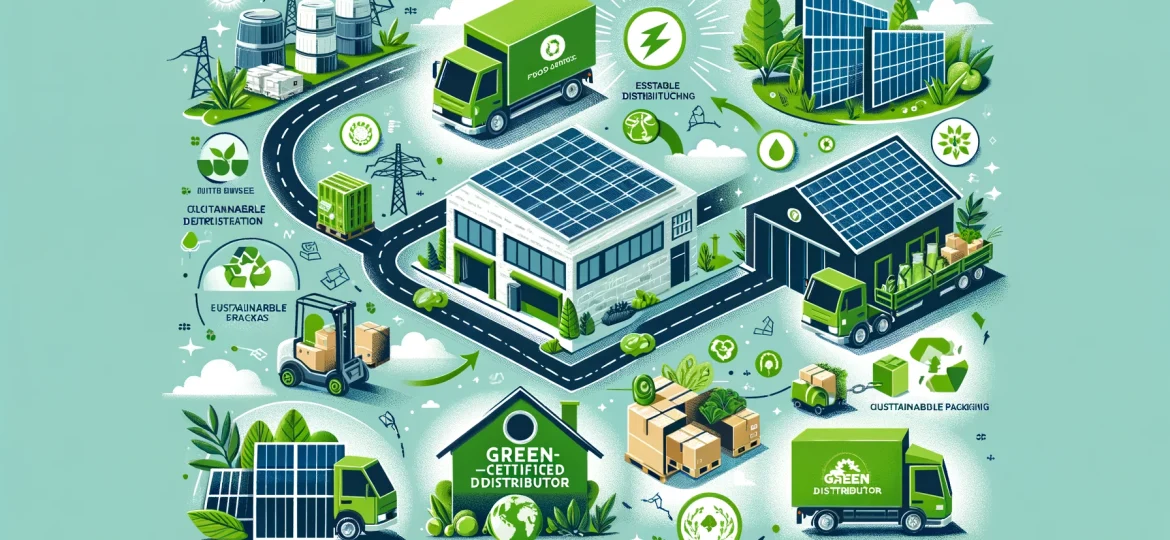
Sustainability is becoming a crucial consideration in the food distribution industry. As consumers become more environmentally conscious, businesses are increasingly expected to adopt sustainable practices. Implementing these practices not only benefits the environment but also enhances brand reputation and operational efficiency. Here’s how you can integrate sustainable practices into your food distribution strategy and ensure your agreements reflect these values.
1. Implementing Eco-Friendly Logistics and Transportation
Transportation is a significant contributor to the carbon footprint of food distribution. Adopting eco-friendly logistics can make a substantial difference:
- Efficient Routing: Use advanced routing software to optimize delivery routes, reducing fuel consumption and emissions.
- Green Vehicles: Invest in electric or hybrid delivery vehicles to lower greenhouse gas emissions.
- Consolidated Shipments: Combine multiple shipments into a single delivery to reduce the number of trips and save fuel.
2. Sustainable Packaging and Reduced Waste
Packaging plays a critical role in sustainability. Shifting to eco-friendly packaging solutions can minimize environmental impact:
- Biodegradable Materials: Use packaging materials that are biodegradable or compostable to reduce waste.
- Recyclable Packaging: Opt for materials that can be easily recycled, and encourage customers to recycle packaging.
- Minimal Packaging: Reduce the amount of packaging used by designing efficient packaging that protects the product with less material.
3. Collaborating with Distributors Committed to Sustainability
Partnering with distributors who share your commitment to sustainability can amplify your efforts:
- Sustainability Certifications: Look for distributors with recognized sustainability certifications, such as ISO 14001 or LEED.
- Shared Goals: Align your sustainability goals with those of your distributors and include these objectives in your distribution agreements.
- Transparency and Reporting: Require distributors to provide regular reports on their sustainability practices and progress.
4. Energy Efficiency in Warehousing and Storage
Warehousing and storage are significant energy consumers in the food distribution process. Enhancing energy efficiency can reduce environmental impact:
- Energy-Efficient Equipment: Use energy-efficient lighting, refrigeration, and HVAC systems to lower energy consumption.
- Renewable Energy: Install solar panels or other renewable energy sources to power warehouses.
- Building Design: Design warehouses with sustainability in mind, incorporating features like natural lighting and insulation to reduce energy use.
5. Regulatory Compliance and Environmental Impact Assessment
Ensuring compliance with environmental regulations is essential for sustainable practices:
- Environmental Impact Assessments: Conduct assessments to understand the environmental impact of your distribution operations and identify areas for improvement.
- Compliance with Regulations: Stay updated on local, state, and federal environmental regulations and ensure your operations comply.
- Continuous Improvement: Regularly review and update your sustainability practices to reflect new regulations and advancements in sustainability.
6. Consumer Engagement and Education
Educating consumers about your sustainability efforts can enhance your brand image and encourage sustainable behavior:
- Transparency: Communicate your sustainability practices clearly through labeling, marketing, and your website.
- Educational Campaigns: Run campaigns to educate consumers on the importance of sustainability and how they can contribute.
- Feedback Mechanisms: Provide channels for consumers to give feedback on your sustainability practices and suggest improvements.
Conclusion
Adopting sustainable practices in food distribution is not only beneficial for the environment but also essential for meeting consumer expectations and enhancing operational efficiency. By implementing eco-friendly logistics, sustainable packaging, energy-efficient warehousing, and collaborating with committed distributors, you can make a significant positive impact. For expert guidance on integrating sustainability into your food distribution agreements, contact Juris Law Group for a free consultation.
